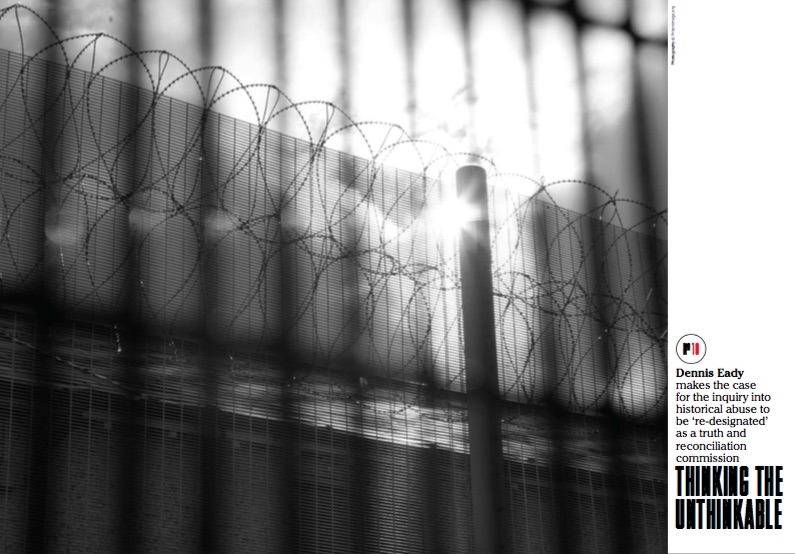[contextly_auto_sidebar]

Photos by Andy Aitchison, www.prisonimage.org
Below the radar of public consciousness, there is a rapidly growing operation that says it’s about making the UK a safer place. By sharing information with other European police and criminal justice systems, it identifies foreign nationals who have committed ‘high harm’ offences including murder, human trafficking and sex offences or ‘the most dangerous and prolific’ individuals, and uses immigration powers in order to remove them from the UK.
Few people will have heard of this obscure project. Yet this joint operation between Home Office Immigration Enforcement and police forces, has been expanded from London, where it was first introduced in 2012, to reach across parts of the Midlands, Yorkshire, Northern England and the whole of Scotland. Already, another five regions have been earmarked for future expansion.
It is called Operation Nexus and even the most liberal amongst us would find little complaint at the idea of dangerous people removed from our streets in order to prevent their causing further harm – if this is what was actually happening.
Unfortunately rhetoric is far removed from reality.
Caught in the Nexus dragnet
The AIRE Centre, a charity that works to ensure vulnerable and marginalised people are protected by European human rights law, has been undertaking research into the impact of Operation Nexus for over a year, and our findings are troubling.
Contrary to the stated aim of targeting high harm foreign nationals, we have a number of clients who don’t have a single conviction and yet are threatened with expulsion under Operation Nexus. In addition, people who may have very old convictions but have been law abiding citizens for decades are still being caught up in this dragnet.
Take the case of Daniel Gardonyi, a young Hungarian activist, with no convictions. Disheartened by the negligence of high paid bankers who caused the banking crisis along with thousands of other British young people, Daniel took to the streets to join the Occupy Movement. Preferring an alternative way of life, he worked for his community in return for lodging and food. He never depended on benefits from the state. Whilst protesting the gentrification of the Sweets Way project (again, with many other British young people) he got into an altercation with a security guard. It brought him to the attention of the police and shortly thereafter he was handed an Operation Nexus branded paper that told him the Home Secretary was thinking about removing him from the UK.
Another individual, known as client X, did not have such a clean criminal record. He committed a number robberies and thefts as a child and at the age of 19, after serving his sentence, was deported to Slovakia.
This was not an example of Operation Nexus deporting a dangerous foreigner however. Client X had lived in the UK since the age of one and his entire family, whom he was completely dependent upon, all live here. When he was deported to Slovakia alone, to a country he hadn’t been to since he was a baby, he had no means of supporting himself. He is currently homeless and it is therefore almost impossible for his lawyers to get in touch with him to try to challenge his deportation.
The AIRE Centres’ Nexus client roster even includes a victim of trafficking and a Roma rights activist, who has British children.
Under Operation Nexus, intelligence is provided by police officers to immigration tribunals and is not limited to an individual’s previous convictions, but can include information on arrests and charges, or even where an individual was a victim of crime. Because rules of evidence in immigration tribunals adhere to a lower standard than in criminal trials, people can find their lives uprooted, forced to leave their children and sent back to a country they have absolutely no connection to anymore, all on hearsay evidence.
Contrary to statements from Dominic Raab and Michael Gove, the UK can and does deport foreign nationals who threaten our fundamental interests, like safety and security. In fact, Article 27 of what is known as the Citizens Directive, specifically states that irrespective of nationality, freedom of movement and residence can be restricted. However, what it also states is that these restrictions are only permitted if the person concerned represents a genuine, present and sufficiently serious threat and a criminal conviction in and of itself cannot constitute grounds for expulsion. Article 28 of the same directive says that Member States must take account of how long an individual has resided in a particular territory, and how well an individual has integrated.
This doesn’t mean no one can be deported. And it certainly doesn’t mean that dangerous, repeat offenders cannot be deported. In fact, EU law does allow the UK to turn away or expel precisely the ‘high harm’ people Operation Nexus was meant to target. What it does mean, however, is that in order for the Home Secretary to deport you, you’ve got to be a threat to society today, and not simply that at some time in the past you committed a criminal offence. Let’s remind ourselves that one of the key aims of the criminal justice system, is rehabilitation.
It also means authorities have to consider how well you’ve integrated into your community before they can deport you – so they have to consider whether you have a family here, whether you are working and have made a life in the UK, and how this compares to the risk you pose. But our evidence reveals a complete disregard for these very real, very applicable laws.
We’ve noted other disturbing trends. Many clients have no idea whether their case falls under Operation Nexus until they turn up at the tribunal hearing. There is significant confusion, even between the police and Home Office Immigration Enforcement, on what the actual purpose of Nexus is. People are often transferred between detention centres in Scotland and England, and because lawyers in one jurisdiction cannot normally practice in the other, clients are forced to find new representation at the last minute. Worryingly, there also appears to be a disproportionate impact on people from Central and Eastern European Countries.
Deport first, appeal later
However, most troubling, is when Operation Nexus is viewed in the context of restrictions on access to justice and the anti-immigrant climate.
Significant cuts to legal aid through the Legal Aid, Sentencing and Punishment of Offenders Act 2012 (LASPO) have meant that it is difficult, if not impossible, for EU nationals threatened with administrative removal or deportation to access appropriate legal advice. The AIRE Centre, a small under-funded charity, has seen its own caseload increase significantly since these cuts were put into place. Therefore when individuals are up against a well-funded, multi-agency policy, EU nationals find themselves removed or deported before being able to access effective legal remedies.
Then there is the deport first, appeal later regime, through which geographical boundaries are put in place to prevent access to justice. In brief this policy means that when the Secretary of State has decided she wants to deport you and you want to appeal that decision, she can deport you while your appeal is being heard as long as that deportation would not breach one of your rights under the European Convention on Human Rights. Since we are talking about EU nationals here, it is rare that deportation to another EU member state would breach a Convention right. She can do this even if you haven’t been back to that country for decades. The outcome is that this geographical barrier makes it extremely difficult for people who have very little resources and may be instructing underfunded charities and pro-bono counsel, to properly challenge this life altering decision.
If an individual successfully manages to bring their deportation case to appeal, the very fact they have managed to do so, can be used as evidence to show they can function perfectly well in this other country. Reminiscent of the Salem Witch Trials in its thinking, the argument generally goes, you managed to survive while your appeal was pending, so it wouldn’t be too harsh to deport you for good.
Finally, changes brought on by the Criminal Courts and Justice Act 2015 mean that even small charities like The AIRE Centre, can face cost sanctions, if we try to challenge this policy through judicial review. This is why today we have launched a Crowd Justice campaign. From today, for the next 30 days, The AIRE Centre is trying to raise £3,000 to help us challenge Operation Nexus. If we don’t raise the full £3,000 we don’t get anything – so we need your help.
Operation Nexus ignores the right to a fair trial.
It breaks apart families.
It undermines trust in the police.
It threatens the rule of law.
This is about fairness and justice. Just because someone isn’t a British national, shouldn’t mean government authorities can ignore their human rights.







